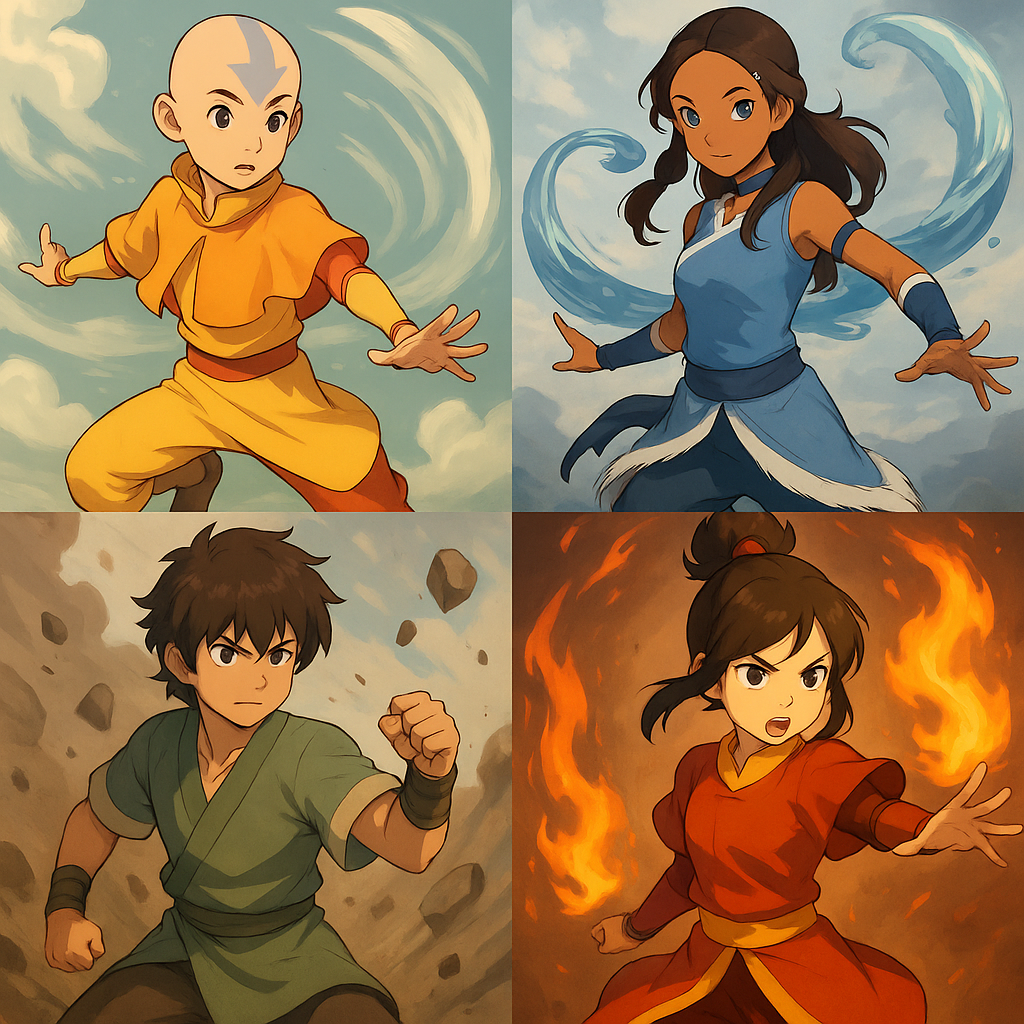Introduction: A Show That Changed Animation Forever
Whether you’re a lifelong fan of anime or new to the world of animation, there’s a high chance you’ve heard of Avatar: The Last Airbender. Released by Nickelodeon in 2005, it became a cultural phenomenon and remains one of the most beloved animated series of all time.
But there’s one question that continues to stir passionate debate:
“Is Avatar: The Last Airbender an anime?”

Let’s explore the origins, artistic style, cultural influence, and how it fits into the definition of anime.
What Defines “Anime” Anyway?
Origin of the Word
In Japan, the term “anime” simply means any kind of animation, regardless of where it’s made. SpongeBob SquarePants is technically “anime” in Japan.
However, in Western culture, “anime” typically refers to animation produced in Japan, characterized by unique visual styles, expressive features, and often deep, serialized storytelling.
Common Features of Anime:
-
Japanese origin
-
Distinct character designs (large eyes, stylized hair, etc.)
-
Strong emotional themes
-
Serialized storytelling and deep world-building
Avatar: The Last Airbender – Quick Facts
| Feature | Details |
|---|---|
| First Aired | 2005 |
| Created By | Michael Dante DiMartino & Bryan Konietzko |
| Produced In | United States |
| Network | Nickelodeon |
| Influences | Japanese anime, Chinese martial arts, and East Asian mythology |
Visual Note: The animation was produced by South Korean studios, which is common even for Japanese anime.
Why People Think It Is an Anime
Art Style
The character designs, fight choreography, and environmental detail are heavily inspired by Japanese anime such as Princess Mononoke and Cowboy Bebop.
Storytelling Depth
Unlike many Western cartoons, Avatar follows a continuous narrative, with intense character development, mature themes, and emotional arcs, just like traditional anime.
Cultural Influences
The world of Avatar is rooted in Eastern philosophies, including:
-
Chinese elemental theory
-
Tibetan Buddhism
-
Inuit and Indigenous water tribe influences
Why Others Say It’s Not Anime
Country of Origin
Anime purists argue that anime must originate in Japan. Since Avatar is an American production, it technically does not meet that criterion.
English as Primary Language
Unlike most anime (which are created in Japanese and later dubbed), Avatar was originally written and produced in English for a Western audience.
So… Is Avatar an Anime?
Short Answer:
No, not in the traditional definition. It’s an American animated series inspired by anime—often referred to as “anime-influenced animation” or “Western anime.”
But if you’re using the word “anime” to describe style and storytelling rather than origin, then yes—it fits the bill beautifully.
Where Does Avatar Sit in the Animation Spectrum?
| Criteria | Anime | Avatar |
|---|---|---|
| Japanese Origin | ✅ | ❌ |
| Anime-Style Art | ✅ | ✅ |
| Deep Storytelling | ✅ | ✅ |
| Cultural Themes | ✅ | ✅ |
| Language | Japanese | English |
Frequently Asked Questions (FAQs)
Why do people think Avatar is anime?
Because of its visual style, mature storytelling, and Eastern influence, Avatar feels like many traditional anime shows.
Is Avatar made in Japan?
No, it was created in the United States by American creators, though animation was outsourced to South Korean studios.
What do Japanese people think about Avatar?
It’s generally well-respected and often included in discussions about anime-influenced global media, though not classified as “anime” locally.
Are there other American shows like Avatar?
Yes! Shows like The Legend of Korra (its sequel), Teen Titans, and Castlevania have similar anime-inspired styles.
Final Thoughts: Labels Matter Less Than Legacy
Whether or not you consider Avatar: The Last Airbender an anime, its impact is undeniable. It blurred the lines between Western cartoons and Eastern storytelling, introducing a generation to themes of balance, war, identity, and destiny.
And maybe that’s the point: the best stories transcend boundaries, definitions, and debates.
🌀 Call it anime, call it a cartoon—just don’t forget to call it one of the greatest animated series ever made.
Also read: “If the World Was Ending I Wanna Be Next to You”: The Song That Made Us All Feel Something

